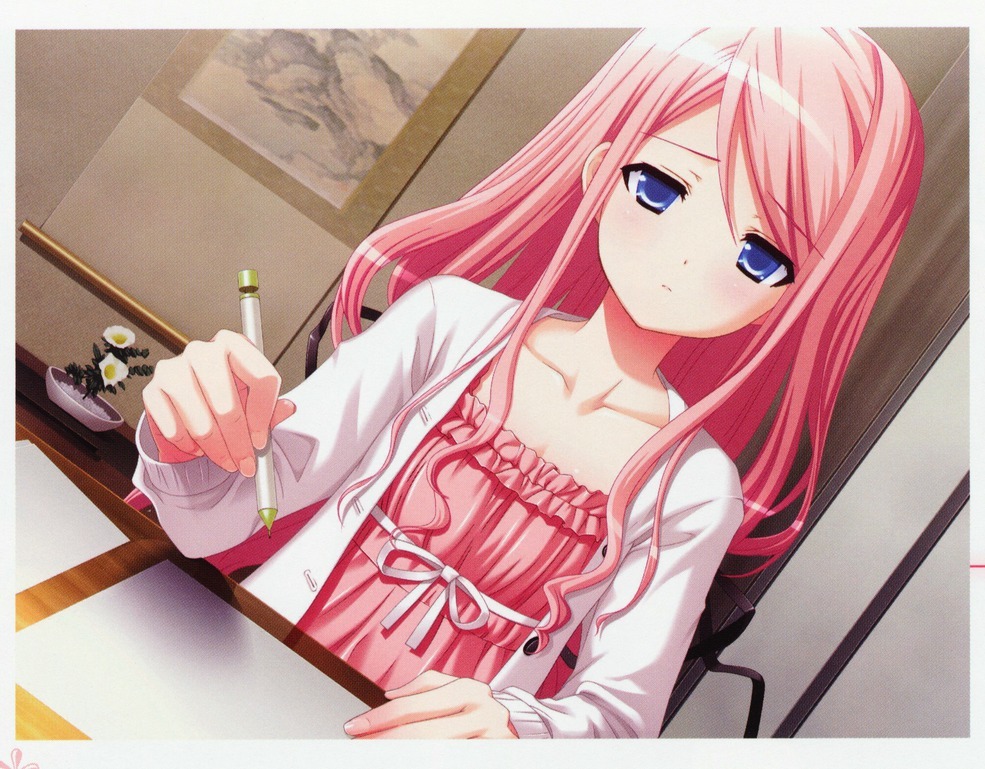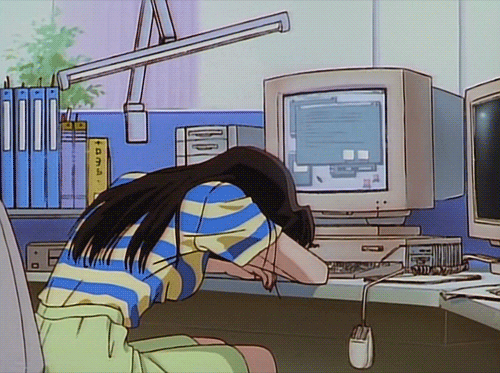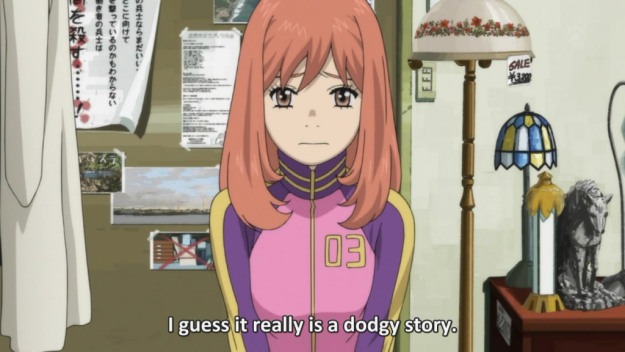
Oh, there is much more to add, my friend. Much, much more. We all want to blog better and get the views. Views are the currency of blogging. But how do we blog better?
By the way, Yumeka has 10 excellent blogging tips you need to check out.
Understanding voice, purpose, and good writing techniques are keys to blogging well.
Now, why should we spend so much time thinking about these types of things? After all, I just want to blog for fun! The whole point of blogging and writing in general is to speak your mind in ways other people can understand. It must be clear. It must be interesting.
 Let’s face it, the Internet is a noisy place. There are thousands of (un)dead blogs shambling around. It is easy to be lost in the ruckus. It is easy to give up when you have few readers. The Internet sucks for those of us who are lost in the shouting match. However, we each have a unique perspective that lends value to the global conversation. You don’t have to yell it. Rather, you need to speak it in a way that is true to who you are.
Let’s face it, the Internet is a noisy place. There are thousands of (un)dead blogs shambling around. It is easy to be lost in the ruckus. It is easy to give up when you have few readers. The Internet sucks for those of us who are lost in the shouting match. However, we each have a unique perspective that lends value to the global conversation. You don’t have to yell it. Rather, you need to speak it in a way that is true to who you are.
One thing about blogging that takes some getting used to is criticism. Not everything you write will be awesome or liked by people. I have seen my own share of criticism since I started writing JP. After all, I am not really an otaku or anything. Anime and Japanese culture are side hobbies. I enjoy only some of the stories and animation styles. Because of this, I am not up on the latest stuff in the anime blogsphere or otaku culture. Yep, I’ve never read yaoi or shonen-ai despite my stab at writing about the genres. Yep, I don’t follow the newest season anime releases. Does that open me up for criticism?
You betcha.
And that is okay. I try to lend my own voice to the anime and Japanese culture conversations. If I put my foot in my mouth, well at least I am that flexible!
Well, that is a long winded introduction. Let’s get to the point. Blogging is about expressing your thoughts. That involves finding your voice, finding your purpose, and using sound online writing techniques,
Voice
What is this voice thing? It’s simple: it’s you.

How do you find your voice?
Listen to how you speak. Do you use words like like? Like, this Tumblr blog is so copastatic! Okay, I probably dated myself with that word. The point is to write based on who you are. Just be careful not to, like, write exactly as you, like, speak. I mean, uh- you know- injections tend to make writing less clear. Sprinkling them in small amounts throughout a post lets your readers know who you are. People want to know about you. Otherwise, they wouldn’t be reading! It is a matter of moderation. Too many idiosyncrasies can be annoying.
But then, almost everyone knows this stuff already. We’ve had basic writing since grade school.
Unlike grade school, blog writing is a balance of you and your ideas. Too much you will make it hard for readers to understand your point. Too little you and your posts become boring. You need to be clear with your thinking and also let yourself speak through the text. Write for a single person. It can be your best friend or whomever, but write for just one person. It doesn’t matter if hundreds or (hopefully) thousands of people will read the article. If you write as you speak to that one person, your writing will be clearer, more engaging, and show your unique voice. This also works if you are writing essays for class. Only there you have to write formally.
But then, I was known to stuff poetry into research papers and take risks in dry computer programming documentation. Sometimes risks pay off, sometimes they hurt.
Purpose
Why do you write?
 Do you write to inform and educate (like I do for JP) or do you want to entertain? Anime reviews are everywhere. Why are you writing yet another Space Dandy or Bleach review?
Do you write to inform and educate (like I do for JP) or do you want to entertain? Anime reviews are everywhere. Why are you writing yet another Space Dandy or Bleach review?
I like it.
Okay, that’s a start. What are you adding to the conversation that hasn’t been said? You have a cool, unique voice, but what else can you offer?
These are hard questions to answer.
I offer a more researched, academic approach. Or so I hope! Sure, I will write my own anime reviews, but I tend to focus on the structure of the story and the animation. My background is animation and graphic design. My purpose in writing for JP is to inform and teach. I also seek to provide balance to sometimes overwrought (there I go again with my nerdy wordiness!) teenage views of Japan. Idealism needs balance. These are the things I lend to the online conversations. If you have an eye for art, why not break down character and scene designs on your reviews? If you are fashion minded, break down a series’s fashion sense.
 A blogger needs to have a sense of purpose in order to keep a blog alive. Blogging should be fun. Blogs die because they are not fun anymore. One way to keep blogging fun is to shake up your topics while still staying in your purpose. A blog needs to be focused, but not too much. An anime episode review blog can get old fast. It is too narrow. JP is about Japanese culture: not just anime. This gives us a wide range of topics while still sticking with our purpose: to educate and engage anime fans and fans of Japan. What you write about is not as important as your purpose for writing.
A blogger needs to have a sense of purpose in order to keep a blog alive. Blogging should be fun. Blogs die because they are not fun anymore. One way to keep blogging fun is to shake up your topics while still staying in your purpose. A blog needs to be focused, but not too much. An anime episode review blog can get old fast. It is too narrow. JP is about Japanese culture: not just anime. This gives us a wide range of topics while still sticking with our purpose: to educate and engage anime fans and fans of Japan. What you write about is not as important as your purpose for writing.
There are many different ways to hit your purpose. If you write an anime episode review blog, you have to consider what your purpose is. Is it to review episodes or to share why those characters appeal to you? Editorials may better hit your purpose better if you want to focus on the characters. You might also be able to compare contrast episodes between series. If you seek to simply critique episodes, you might also want to study on cinema techniques to lend more information than “I like this” or “I dislike this”.
Writing Techniques
The Fact of the Internet: people don’t read every single word of every article.
This reality is a little discouraging. After all this post is long and took a fair bit of time to write. Did you read all of it? Every single word?
Blog posts that are long, well written, and well structured tend to attract Google (Not that I claim this post is any of these). Google loves long posts a long time! However, we are not writing for Google. Blog articles need to be scannable. People read in F shapes and look for words and images that snag the eye. Bold fonts, headings, and nice images are part of good online writing.
White space is one of the most important tools.
 Good use of white space in addition to headers that logically divide a post into sections and subsections are necessary for pulling readers through a blog post. Both give the eye time to rest and tells the reader what to expect. White space is vital. We can’t read words without it. When we look at a letter, we see the shape of the white space around it. Now extend this idea to an entire article.
Good use of white space in addition to headers that logically divide a post into sections and subsections are necessary for pulling readers through a blog post. Both give the eye time to rest and tells the reader what to expect. White space is vital. We can’t read words without it. When we look at a letter, we see the shape of the white space around it. Now extend this idea to an entire article.
There are no hard or fast rules for how to use bold text, headings, and white space. Part of this reflects your individual voice. Just avoid walls of text. No one wants to read a wall of text.
Writing with Images
Images are one of the most important writing tools. This sounds a little weird, but images can emphasize points that can take a book to explain. Good images are relevant to the ideas you are trying to share. They speak to the reader. Many bloggers are guilty of adding random images to spruce up their writing. This does not add quality to the article. Adding captions to images helps clarify the point you are trying to make. You can also reference the image in the paragraph to further make your point. Don’t assume the reader knows what you are talking about. I’ve confused my friends doing that. I’m sure you have too! We want our ideas to be clear.
Writing Nuts and Bolts
Grammar is important in blog writing. Be clear. Be concise. Proofread. Don’t try to dazzle with big words and long sentences. Yeah, I am guilty of doing that. What’s cool about blogging is it is informal. You can play around with sentences like you saw me do in this article. As long as it isn’t over done, it’s cool. It helps people know you – how you talk and how you think. However, a ton of misspelling and wrongly used words distracts the reader and makes you look like a dummy. People are forgiving about small mistakes. We all make ’em. But if you drunk type or blind type your blog posts, you may want to reconsider that post.
Well, there you have it! A long winded look at how to blog a little better. I don’t make any claims to being an expert blogger. These are tips I read, used, and discovered over my stint writing JP and other web content. I hope you find it helpful and a little different from all the other “blog gurus” that litter the net.
References
Hale, C. (2013). Sin and Syntax: How to Craft Wicked Good Prose.
Halvorsen, K. & Rach, M. (2012). Content Strategy for the Web (2ndEd). Berkeley: New Riders. ISBN-10: 0321808304 | ISBN-13: 978-0321808301 | Edition: 2.
Rowse, D. (2005). Writing Blog Content – Make it Scannable. http://www.problogger.net/archives/2005/08/19/writing-blog-content-make-it-scannable/


Thanks for the mention =)
Excellent blogging tips. Good point about being open to criticism. Even if someone is being an ignorant jerk, I try to be civil in my reply comments just to show that I don’t have to stoop to their level (and, hopefully, that I know more about what they’re talking about than they think). Thankfully I rarely get such comments…I guess if you’re basically nice and open-minded in your writing (in other words, your posts are overall positive and don’t bash anything) you’re more likely to attract people who are also like that. I have gotten several troll comments that are just plain disgusting or rude, but since I have comment moderation on, I just delete them before they go live XD
Good point about making your long posts scannable too, which is why I emphasized the importance of breaking up walls of text with images and subtitles. Trying not to make paragraphs really long is helpful too (the importance of “white space,” as you suggested).
I agree. A positive writing tone seems to keep trolls and other malcontents away. I will allow some aggressive comments through moderation if they make valid points. Ad hominem attacks are a different matter.
I enjoyed your collection of tips.
While personally I do not blog or plan to in the future, I have to say this is a great post. Even with such a topic your writing style kept me interested and reading.
Thanks. Blogging isn’t for everyone. It takes quite a bit of time and focus. I toyed with a 2 post schedule, but the time it take to research and write is prohibitive. Quality is the most important factor.